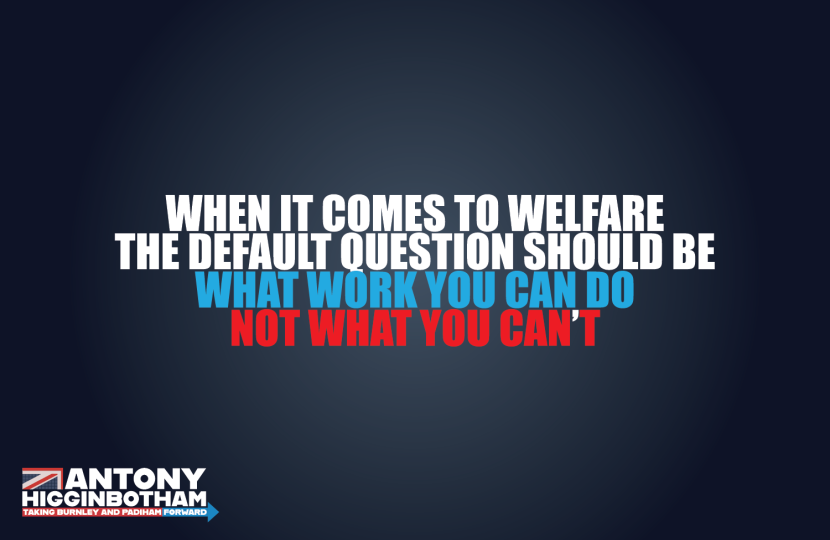
One of the greatest attributes of our country is the desire and ability to help those who are in genuine need. And one of the areas where we see our national compassion more clearly than almost anywhere else, is our social security and welfare system. The principles that underpinned it at the beginning – that everyone should have a safety net if they fall on hard times – are as relevant today as ever before.
But it has strayed from that purpose too. It may have done so with the best intentions, but the sense of fairness that we all have engrained in us, is being questioned. And it’s being questioned because the system is writing off far too many people.
Millions across the country, including too many in Burnley, are signed off as not fit to work, permanently or temporarily, when all that is needed is some time, understanding, and adaptations.
We should all care about that. Because work brings more than just an income, it brings economic freedom, a social life, and optimism for the future. Taking it away stifles life chances and does great harm.
Since the pandemic we’ve seen a worrying trend with the number of those being signed unfit to work nearly doubling. And a concerning 94% of the fit notes issued state that no work is possible. Can that really be right in an era of flexible working, when employers are more open than ever to support their workforce?
We’ve come a long way in being able to openly talk about mental health. And as I’ve said many times before, it’s right that we’re moving to an approach which recognises the importance of good mental health, just as we do physical health. But automatically taking the general stresses of life, which we will all go through, and diagnosing every case as a medical condition prohibiting work can do more damage than good.
A one-size-fits-all approach just isn’t working. And it’s why changes are currently being discussed which will see more tailored support which better helps those who can work, get back into work.
The reforms being proposed, on fit notes, occupational health, work capability, and now disability benefits too, are about supporting people to remain in the workplace. Because when it comes to our generous welfare system, the default question should always be, what work you can do, not what you can’t. Any sensible person would surely agree this is the fair approach to taxpayers, those impacted, businesses, and society as a whole.

